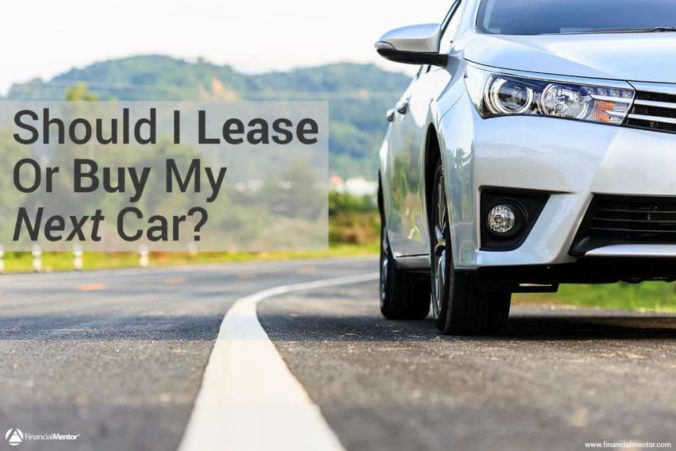You’re ready to retire your old car and acquire a new ride. Or maybe you’re shopping for the very first car you can call your own. Should you buy or lease? It’s a great question because there are benefits and drawbacks with both options.
In terms of which is the most financially sound choice, here’s the simplest way to look at it:
- Buying a car and holding onto it for several years after it’s been paid off is usually cheaper than leasing over the long haul because you can sell it to get some of your investment back.
- Leasing often offers a lower down payment and lower monthly payments than a car loan, which translates to more short-term cash flow for you.
Also keep in mind that buying a car outright with no loan, if possible, is typically the biggest money-saving option, except in certain interest rate environments.
Buying Is Right for Most Folks
All else being equal, we would recommend you seek to buy a vehicle and hold onto it for several years rather than lease it.
Buying is the better long-term option, financially speaking. If you like to drive a brand-new vehicle every few years, maybe leasing is better for you. But before you start leasing, really give some thought to whether it’s financially prudent for you because owning a vehicle outright is a better option.
Financial considerations aren’t the only factors that go into a decision to buy or lease a car. You should also consider how much you drive, what sort of wear and tear you tend to put on your car, and whether you’ll be using the car for business purposes.
How you answer these questions can help you decide whether to buy or lease:
Do you drive a lot? When you drive a leased car more than the lease agreement specifies, you’ll have to pay for those extra miles. A typical three-year lease agreement might charge you 15-20 cents for each additional mile driven beyond the lease’s annual limit, which is generally between 10,000 and 15,000 miles.
Some dealers will let you negotiate a lower per-extra-mile price if you pay for it upfront. If you think you’ll be driving 5,000 miles per year or more over the limit in your leased car, you should definitely try to get those extra miles at a better price. Of course, if you buy your car, you can drive it as long and as far as you like.
If you drive a lot, you should probably buy.
Do you put a lot of wear and tear on your car? A standard three-year lease agreement will tack on as much as three months of extra lease payments to your deal if you’ve been hard on the leased car. These wear-and-tear fees can accumulate when you get scratches on the car or damage the interior.
If you have kids who frequently spill stuff on your leased car’s upholstery, you’ll probably get dinged with wear-and-tear fees when you renew your lease. If you buy your car, you won’t feel the financial hit of such hard use until you go to sell it.
If you put a lot of wear and tear on your car, you should probably buy.
Do you plan to keep renewing leases to acquire new cars? One of the benefits of leasing is you can simply trade in your car for a new one when the lease is up. But that’s one of the drawbacks as well.
With a second lease, you may be making another big down payment. Over time you’re just making all these down payments but own nothing at the end of each lease. When you buy a car, you’re buying equity in it, although granted, it’s a depreciating asset.
Keep in mind that a lease contract is negotiable just like anything else. You should always review the contract and negotiate to better fit your needs. This includes what will happen if you need to get out of the lease ahead of schedule due to a deployment or a PCS.
If you plan to lease a car or renew a lease, look for favorable down payment terms.
Do you want a car mainly for business purposes? The IRS offers certain deductions for leased vehicles used for business purposes. Calculating these can get complicated and involve how much you’re driving the car for business rather than personal use, gas and maintenance costs, the price of the car and more. Consult a tax professional to determine whether and how you can claim a leased vehicle as a business expense.
An additional reason you may have for leasing is if it helps you professionally to have a newer car. Jobs that involve both driving and impressing clients, like real estate agent, might fall into this category.
If you plan on driving your car primarily for business purposes and use the quality and appearance of the vehicle as a marketing tool, you may want to lease.
In most instances, buying a car rather than leasing it is the better long-term financial decision.
“A few advantages of buying are that you own your car, you can use it however you please and you can modify it however you like. A disadvantage is that you do own it, so all the repairs are yours to pay for, and when it comes time to sell, it’s on you,” she says.
“Leasing for most people is not as smart financially because they’re losing out in the long run.”
Want to know what your next car loan is going to cost you? Use the USAA Consumer Loan Calculator to find out¹.

Leave a Reply